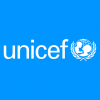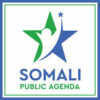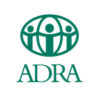REQUEST FOR CONSULTANTS
The Adventist Development and Relief Agency (ADRA) are a global humanitarian organization with a mission to work with people in poverty and distress to create just and positive changes. ADRA Somalia belongs to the worldwide network, comprised of more than 130 supporting and implementing country offices. ADRA Somalia is seeking for a consultant to conduct consultancy for gender and social inclusion (GESI) capacity strengthening and institutionalization for inclusive green skills programming in Somalia.
Background:
Gender equality and social inclusion (GESI) are globally recognized as cornerstones of sustainable development, peace, and resilience. The 2030 Agenda for Sustainable Development establishes GESI as both a human right and a critical enabler for inclusive growth, particularly through SDG 5 (Gender Equality) and SDG 10 (Reduced Inequalities).
2. Purpose of the Assignment
The consultancy aims to deliver a comprehensive, multi-phase, and technically rigorous process that strengthens institutional and individual capacities to integrate GESI principles into green skills programming. Beyond conventional training, the assignment will embed GESI through diagnostics, institutional audits, mentorship, policy dialogue, and monitoring systems, thereby supporting sustainable institutional transformation.
3. Objectives
Overall Objective
To institutionalize GESI within green skills programming through strengthened systems, policies, and capacities that foster equitable participation of women, PwDs, and marginalized groups
Specific Objectives
- Conduct baseline diagnostics and institutional audits to assess GESI readiness and barriers.
- Develop and deliver a modular GESI capacity strengthening framework tailored to Somalia’s green economy context.
- Establish mentorship, peer-learning, and coaching mechanisms to reinforce adoption of inclusive practices.
- Support institutions to design and adopt GESI Action Plans, policy statements, and multi-year roadmaps.
- Develop monitoring, evaluation, and learning (MEL) frameworks for tracking and sustaining GESI integration.
- Facilitate national-level dissemination and policy dialogue to align institutional practices with government priorities.
4. Scope of Work
The consultant/firm will implement activities across seven interlinked phases over a period of approximately 8 to 12 weeks
Phase I: Diagnostic and Inception (Week 1–2)
- Conduct desk review of relevant policies, strategies, donor frameworks, and institutional documents.
- Map stakeholders (government ministries, CSOs, private sector, training institutions, marginalized groups).
- Design and administer GESI baseline and KAP (Knowledge, Attitudes, Practices) surveys.
- Conduct FGDs and KIIs with women, PwDs, minority groups, and industry actors.
- Produce Baseline GESI Readiness Report with gap analysis.
- Deliver Inception Report detailing methodology, analytical framework, and refined work plan.
Phase II: Institutional GESI Audits (Week 3)
Conduct institutional GESI audits across participating institutions, covering:
- Policies, governance, HR practices.
- Curricula and pedagogical methods.
- Infrastructure and accessibility (e.g., ramps, sanitation).
- Safeguarding and accountability systems.
Benchmark results using a GESI Capability Maturity Model.
Produce Audit Reports with institution-specific recommendations.
Phase III: Development of GESI Framework and Toolkits (Weeks 4–5)
a) Develop modular GESI capacity strengthening framework:
- Module 1: Gender norms, power analysis, and intersectionality.
- Module 2: Inclusive pedagogy and universal design for learning (UDL).
- Module 3: Mentorship models, flexible learning pathways, role modelling.
- Module 4: Safeguarding, PSEA, and accountability mechanisms.
b) Develop tools:
- GESI Audit Tool and Safety Audit Checklist.
- Curriculum Adaptation Guide and inclusive teaching checklists.
- Mentorship Implementation Guide.
c) Translate toolkits into Somali for accessibility.
d) Pilot framework with a sample cohort and revise.
Phase IV: Capacity Strengthening Delivery (Weeks 6–8)
- Facilitate modular sessions across multiple cohorts (2–3 cycles × 5–7 days).
- Apply adult learning and participatory methods (role plays, simulations, case studies, debates, storytelling)
- Integrate diagnostic tools: Harvard Analytical Framework, Gender Analysis Matrix, Power Analysis.
- Conduct on-site coaching visits to observe adoption of GESI strategies.
- Prepare weekly reflection notes to track learning uptake.
Phase V: Mentorship and Peer Learning (Week 9)
- Establish Peer Learning Circles among staff across institutions.
- Facilitate bi-weekly mentorship sessions pairing participants with women leaders, PwDs, and industry role models.
- Document case studies of emerging champions.
Phase VI: Policy Dialogue and Institutionalization (Week 10–11)
- Support institutions to draft GESI Action Plans and multi-year institutional roadmaps.
- Organize policy dialogue workshops with line ministries, CSOs, and private sector actors.
- Develop advocacy briefs for policy integration of GESI in green economy sectors.
- Support institutions in drafting GESI Policy Statements.
Phase VII: Monitoring, Evaluation, and Knowledge Products (Week 12)
Develop GESI MEL Framework including indicators, baseline values, reporting templates.
Train institutional staff on collecting and analyzing sex-, age-, and disability-disaggregated data.
Conduct endline tracer assessment to measure knowledge retention and institutional change.
Produce Final Consultancy Report with baseline–endline comparison, institutional maturity mapping, and sustainability roadmap.
Deliver knowledge products:
- Policy brief (government and donor audience).
- Practitioner toolkit.
- Case study compendium.
- M&E dashboard.
Convene a dissemination workshop to share findings, lessons, and policy recommendations.
5. Deliverables
The consultant/firm will produce:
- Inception Report (Week 1) – methodology, analytical framework, detailed work plan.
- GESI Capacity Strengthening Framework (Week 3) – four technical modules, facilitation guides, case studies.
- Diagnostic Tools – Institutional GESI Audit Tool, Safety Audit Checklist, Monitoring Framework.
- Pilot Report (Week 3) – documenting pilot outcomes and revisions.
- Weekly Reflection Notes (Weeks 4–6) – capturing progress, challenges, and lessons.
- Draft GESI Institutional Action Plans (Week 7).
- Validation Workshop Report (Week 7).
- Final Consultancy Report (Week 8) – comprehensive analysis, results, recommendations.
- Knowledge Products (Week 8):
- Practitioner toolkit (digital).
- Policy brief for government/donors.
- M&E dashboard for tracking GESI integration.
6. Methodology
The consultancy will apply:
- Gender-transformative approach: targeting structural and relational power imbalances
- Intersectionality framework: analyzing intersecting exclusions (gender, disability, displacement, minority status).
- Adult learning & experiential pedagogy: interactive techniques adapted to literacy levels.
- Diagnostic tools: Institutional Capability Maturity Model, Gender Analysis Matrix, Power Analysis, Safety Audits.
- Iterative learning cycles: piloting, reflection, adaptation.
- Safeguarding and PSEA compliance: ensuring ethical participation, do-no-harm, and inclusivity.
7. Duration and Level of Effort
The assignment will run for approximately 8 to 12 weeks:
- Phase I: Inception and baseline (8–10 days).
- Phase II: Institutional audits (6–8 days).
- Phase III: Framework and toolkit development (8–10 days).
- Phase IV: Capacity delivery and coaching (15–18 days).
- Phase V: Mentorship and peer learning (6–8 days).
- Phase VI: Policy dialogue and institutionalization (8–10 days).
- Phase VII: MEL, reporting, dissemination (8–10 days).
8. Consultant Qualifications
- Advanced degree in Gender Studies, Inclusive Education, Development Studies, or related discipline.
- Minimum 10 years’ professional experience in GESI programming in fragile/conflict-affected contexts.
- Demonstrated expertise in institutional audits, curriculum design, and GESI mainstreaming.
- Proven facilitation experience with participatory adult learning approaches.
- Strong familiarity with Somalia’s socio-political and cultural context.
- Knowledge of green economy and climate-resilient livelihoods an asset.
- Strong analytical, reporting, and knowledge product development skills.
- Fluency in English and Somali required.
9. Management and Oversight
ADRA Somalia: Overall technical oversight, approvals, and logistical facilitation.
Consultant/Firm: Responsible for technical delivery, tools, facilitation, mentorship, and reporting.
Steering Committee: Provides validation, quality assurance, and alignment with donor frameworks.
How to apply
For the full Terms of Reference (TOR) please visit ADRA Somalia website www.adrasom.org. Interested consultants/firms that meet the requirements should submit their applications via email to hr@adrasom.org by COB 25th September 2025, with “Expression of Interest for GESI Capacity Strengthening and Institutionalization” in the subject line.
‘’ADRA Somalia is committed to upholding the rights of all children and vulnerable adults that we serve and those we interact with in the course of our work. We endevour to protect all from all forms of abuse and exploitation as outlined in the UN Convention on the Rights of the Child and Inter Agency Standing Committee (IASC) six core principles on Sexual Exploitation and Abuse (SEA). ADRA Somalia has zero tolerance to abuse and exploitation of beneficiaries and staff.’’





